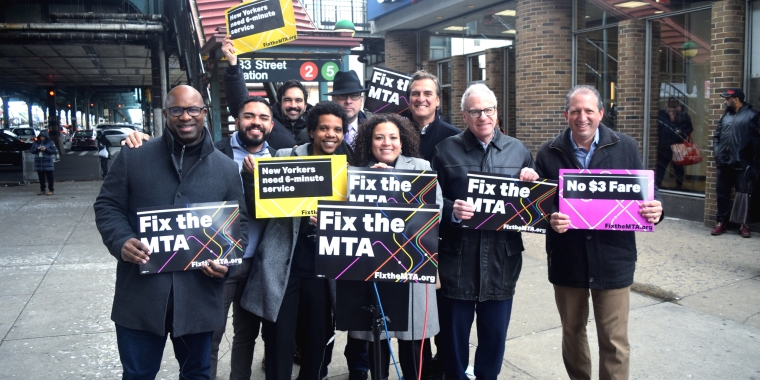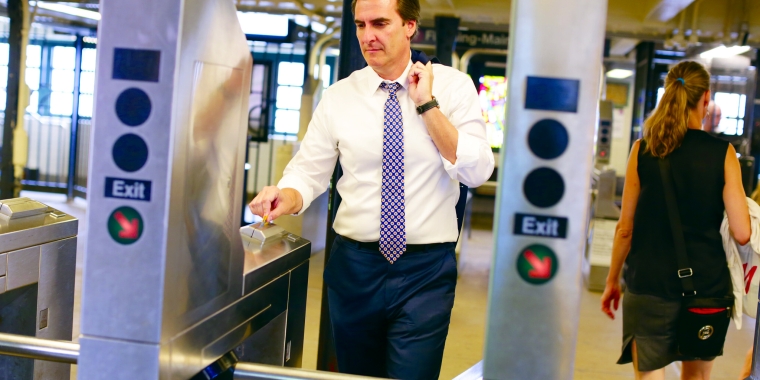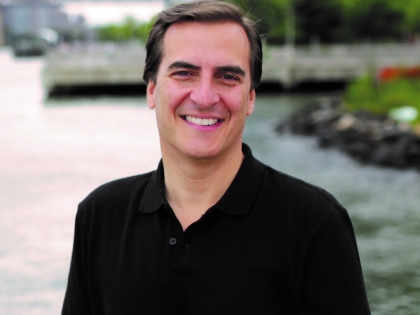
amNew York: Over and out? State bill would thwart NYPD radio encryption plan and protect public access to transmissions
Todd Maisel
November 17, 2023
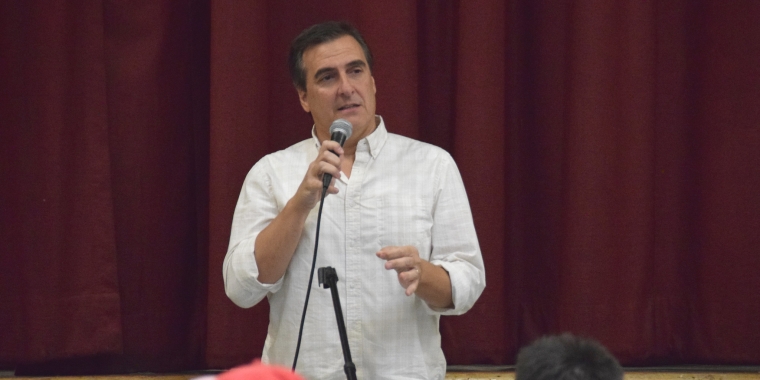
State lawmakers are looking to thwart the NYPD’s plans to encrypt all their police radios and keep the press and public in tune with police communications.
Queens state Senator Michael Gianaris introduced legislation that would compel all police departments in the Empire State, including the NYPD, to provide “real-time” unencrypted police radio communications to credentialed members of the media. While press members would get a real-time feed, the general public would have access to a 10-minute delayed broadcast of police communications.
The bill comes as the New York City Council prepares to hear arguments from the press and public to address the NYPD’s radio encryption plan. The NYPD has said it is considering several plans to provide delayed radio communications to the public, including a possible 30-minute delay, but ruled out giving real-time radio broadcasts to the press because the department no longer directly vets the press or issues credentials.
The NYPD claims encryption is to keep their officers and the public safe from radio interference and preventing malevolent listeners from using communications against them. Members of the media and public interest groups, however, argue eliminating public access to police radio communications would amount to “the most regressive transparency policy in the history of New York.”
After six years of working on its $1.5 billion communications upgrades, NYPD officials have still not said what frequencies they intend to share with the public, nor when they intend to institute broadcasts of their channels. Since July, 10 precincts have been encrypted in some of Brooklyn’s highest crime areas, locking out the media from knowing what is happening in those communities.
Gianaris, however, said it is essential for public access to police communications to remain.
“Preserving access to law enforcement radio is critical for a free press, use by violence interrupters, and the freedoms and protections afforded by the public availability of this information,” said Gianaris. “As encrypted radio usage grows, my legislation would strike the proper balance between legitimate enforcement needs and the rights and interests of New Yorkers.”
The bill would impact departments in other parts of the state that have already been fully encrypted. Some of those departments have completely locked out the media and public from monitoring communications, thereby leaving those departments in “full control of the narrative.”
Critics say that this gives encrypted departments the ability to release information that is favorable to them and hide incidents that they don’t want the public to know about — including potential episodes of police brutality and custodial death, such as the fatal chokehold of Eric Garner on Staten Island in 2014.
Protecting the First Amendment
As a result of the NYPD pursuing radio encryption, press organizations have formed an umbrella organization, the New York Media Consortium, for the common goal of assuring radio access for the press.
“This draft bill is a good start for ensuring that the First Amendment right of the public to receive information about what their government is doing is upheld,” said National Press Photographer Association General Counsel Mickey H. Osterreicher, whose organization is part of the nine-member consortium. “For all those who care about transparency and accountability, continuing real time access by the press to radio transmissions involving matters of public concern is crucial.”
Bruce Cotler, president of the New York Press Photographers Association and member of the consortium, applauded the legislation.
“I think its great,” Cotler said. “It couldn’t come at a better time when we are set to meet with the City Council to tell them our concerns and needs in regards to police communications.”
Diane Kennedy, president of the New York State Publishers Association said the legislation is timely.
“The New York News Publishers Association applauds Senator Gianaris for introducing this important piece of legislation, which is designed to protect the public’s right to know when law enforcement agencies are carrying out public safety activities,” Kennedy said. “Since the 1930s, journalists have monitored police radio communications in carrying out their duty to inform their readers about events such as terrorist attacks, natural disasters, accidents and violent acts which pose a risk to public safety. By informing the public in real time, news organizations empower members of the public to avoid certain locations or to take other actions to remain safe. The ability to learn about unfolding events also enables journalists to quickly access the scene of such events to provide an impartial account of matters that involve public safety.”
The New York Press Club was equally pleased with the legislation.
“Denying access to radio transmissions by emergency personnel is a First Amendment violation of Freedom of the Press and the public’s right to know about important ‘real time’ information,” said Press Club President Debra Toppeta. “Equally critical will be the resulting delays in reporting on emergency situations, causing a threat to people’s lives and property.”
Outside of NYC, news organizations were applauding the bill including Howard Owen, publisher of The Batavian in Genesee, NY.
“By tradition, in this country, the activities of police officers have been public and transparent because, as a nation, we believe the government is accountable to the people. Transparency and accountability, which go hand-in-hand, protect both suspects and the public. Police departments are powerful organizations,” Owen said. Open communication is one tool to protect against secret arrests or cover-ups of police misconduct, which leads to better policing, and it also serves to ensure the public receives timely and accurate information about critical activities in their communities. Police departments should be prohibited from secret communications except in the most narrow of circumstances.”
Gianaris’ bill, which will reportedly be introduced shortly, would add a new section to the executive laws under Article 11, “Division of State Police,” and would add a new section to the existing laws for the state’s radio communications system.
Share this Article or Press Release
Newsroom
Go to NewsroomCity & State: Michael Gianaris: LaSalle supporters got what they wanted
February 24, 2023
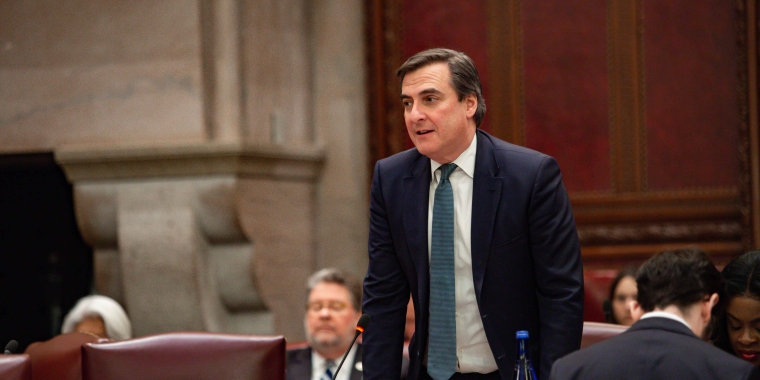
City & State: Bronx to state leaders: Fix the MTA
February 24, 2023
